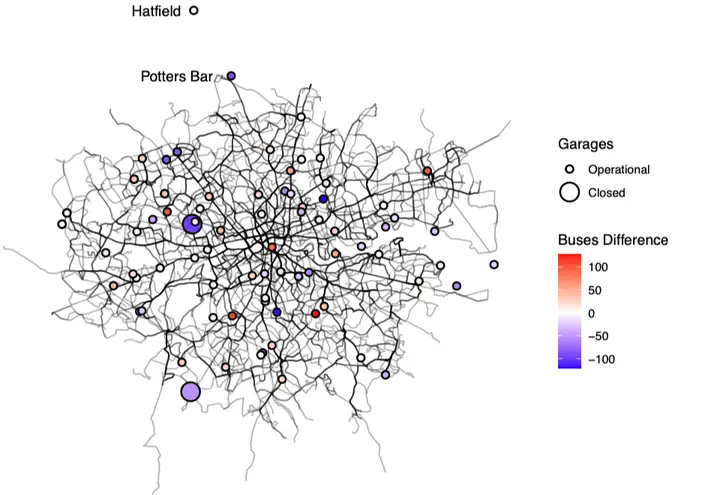 Results from unbundling garage ownership from operations in London bus procurement market
Results from unbundling garage ownership from operations in London bus procurement marketAbstract
This paper investigates the efficiency impact of garage ownership frictions in the procurement of public bus transportation services in London. In this market, operators are less competitive for routes far from their garages, leading to local monopoly rents. Empty bus travel between garages and routes (dead miles) is found to account for about 13 percent of driving time in this market. Consequentially, sizeable effects of dead mile minutes on bids and procurement costs are estimated. Taking the urban context and the demand side as given, and treating this market as a typical network industry, counterfactual simulations evaluate the effect of unbundling the ownership of bus garages from the operation of the bus routes. Letting a central dispatcher allocate buses to garages would reduce total dead miles by 14%, with corresponding reductions in operating costs and harmful pollutant emissions.